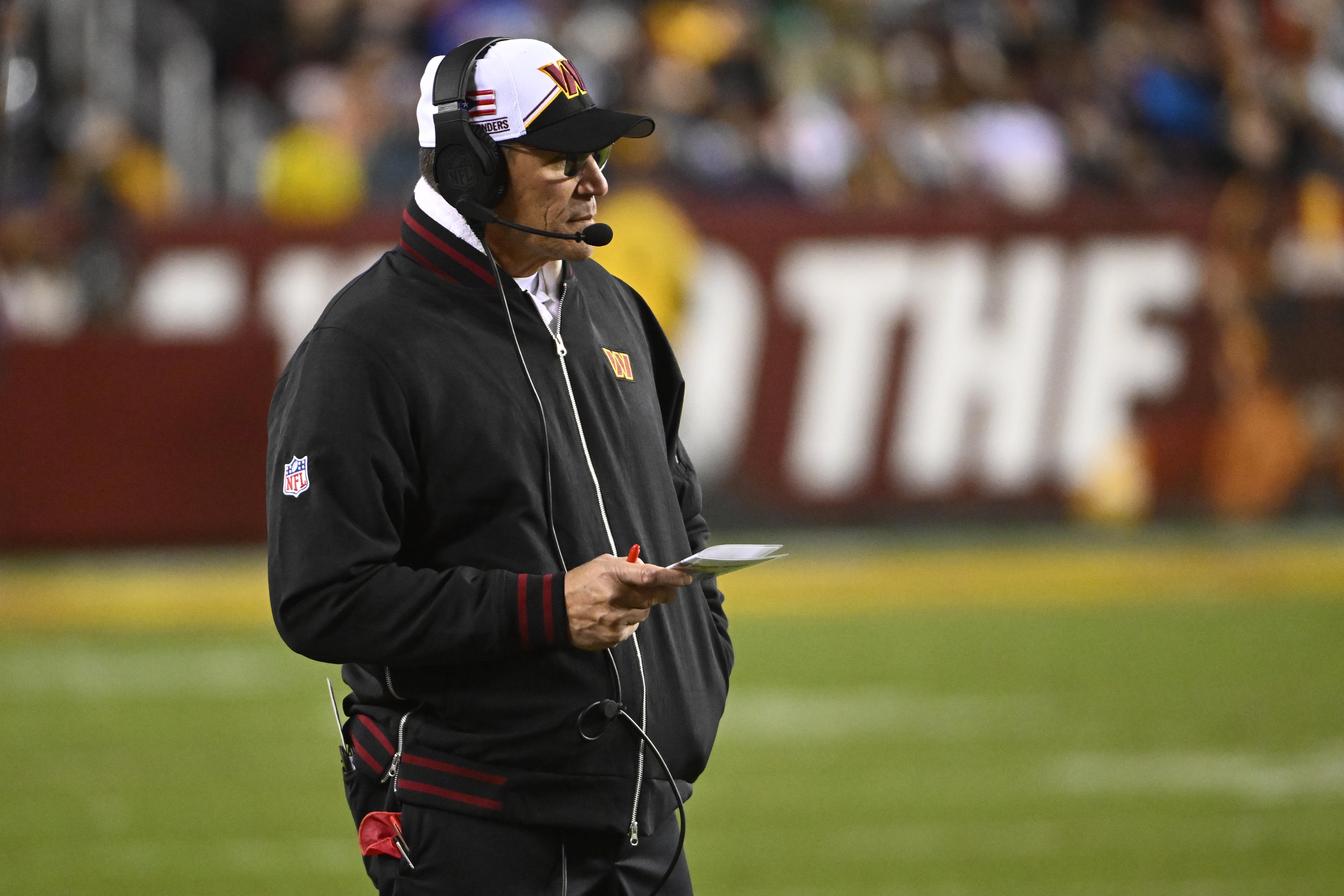Ron Rivera Couldn’t Overcome the Monumental Task He Faced in Washington
Ron Rivera played the part of an NFL head coach for the past four seasons in Washington. He made roster decisions and ran meetings. One could see him on the sideline with the appropriate logo on his hat, arms folded, looking stoic.
He put in the long hours. Slogged through the meager times. Watched more middling offense than a Detroit Pistons fan. Now that, as of Monday morning, the Washington Commanders have officially fired Rivera, he can do anything he wants. He’d be great on television. He can coordinate a defense. For the Philadelphia Eagles, he might be able to still play linebacker.

But for Rivera, being freed from the other part of his job—the massively difficult task of making the Commanders feel reminiscent of a functional organization—has to be liberating. He played the part of an NFL coach but he was, more than anything, a kind of statue that Daniel Snyder could place outside of the building to assure people that all was well. This is an immense credit to Rivera, who has spent the majority of his NFL head coaching career (during which he came into Sunday with a perfectly even 102-102-2 record, by the way) being the adult in the room. He managed big personalities in Carolina. He nearly went undefeated in 2015 en route to a Super Bowl appearance. And in Washington, every once in a while, he made us think that there was a formidable football outfit there. The latter of which may have been his magnum opus.
This is not meant to be tongue in cheek. And while Rivera certainly had his shortcomings, which is what ultimately led new owner Josh Harris to pivot, piloting a team through absolute hell has to be worth something.
How bad was it? Just sneak a peek back to that NFLPA survey from a year ago. Before Harris’s arrival, Washington was described as the worst franchise in the sport. Only the knowledge and jovial attitude of the team’s training staff was complimented. An F for the way the Commanders treated family members. An F minus for the way they plunked the players into tight airplane seats like packed sausage links. Another F minus for the quality of the locker room, for the quality of the training room and a D plus for food service and nutrition.
For those of you readying to make the hideous argument that these are millionaires and they should all “suck it up,” there is nothing more defeating than the resounding notion that your organization cares nothing about who you are, what you need or who you are responsible for. I can promise you that there is a direct correlation between how a player feels and how they perform. Rivera had to stand in front of a group of people weekly and find something to say other than … Welp!
As we wrote a few months ago, there is a sweetness here because moving on from Rivera is a kind of separation from a time when statues were necessary to keep up appearances. At some point very soon, the name Washington Commanders (or, Dear Lord, a new name other than the Commanders) will not evoke an audible groan from anyone who is forced to play or coach there. At some point there will be a big, polished stadium. At some point, there will be a weight room that doesn’t look like the fitness center at La Quinta. This cycle, the owner of the Commanders can hire with his heart, and not out of the cold necessity of finding someone who can hold a pot over constantly boiling water.
Rivera’s ouster is the end of one era and the beginning of another. For example, the most effective strategy in coach hiring right now is grabbing someone from the Kyle Shanahan or Sean McVay trees, and allowing them to modernize the offense. That could be a real option now. Another effective strategy is poaching a brain trust of capable thinkers from another high-powered organization, like the Baltimore Ravens (assuming those folks are capable of creating something on their own). That could be a real option now, too.
Whatever happens, it’s important to remember that, during Rivera’s tenure of congressional inquiries, quarterback instability and the ousting of an active owner, the team won a division title and had a top-10 defense in two of the four seasons. A team was competitive despite never being able to field a top-flight passer or a top-flight offensive mind (Rivera’s teams never produced an offense that ranked higher than No. 20 in total yards). He is the reason that brighter times are ahead much sooner than expected.
